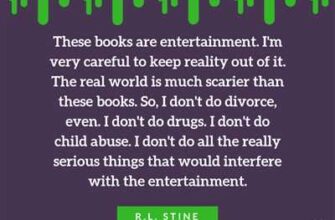
Starting a novel can be an exciting but daunting task. When you sit down to write, time seems to fly by, and before you know it, you’re knee-deep in the world you’re creating. But in order to get to that point, there are a few important steps to take. Here’s a guide to help you get started on your novel writing journey.
The first thing you need to do is pick a genre. This is an important step because it sets the tone and direction for your story. Knowing the genre will help you flesh out your characters, build the plot, and develop the narrative arc. It will also help you identify your target audience and tailor your writing to their preferences.
Once you have a genre in mind, the next step is to develop your characters. Take some time to write down their backgrounds, motivations, and goals. This will help you get to know them better and ensure that their actions and decisions are consistent throughout the story. By having a clear understanding of your characters, you’ll be able to write more authentic and compelling dialogue and prose.
Now that you have your genre and characters in place, it’s time to start building the plot. Think about the main conflict or problem that your characters will face, and how they will resolve it. This will give your story a sense of purpose and direction, and help you maintain the momentum and keep your readers engaged.
When you’re ready to write, sit down at your computer, open up your favorite writing software, and get started. There are many excellent options out there, both free and paid, so pick the one that works best for you. Some writing software includes features like grammar and spell check, performance analytics, and cloud storage, which can help you analyze your writing and keep track of your progress.
As you write, don’t lose sight of your main goal: to tell a compelling story. Focus on the unique point of view you bring to your novel and let your thoughts flow onto the page. Don’t get too caught up in the small details at this stage; you can always go back and edit later. The most important thing is to get your ideas down now, so you have something to work with.
When your novel is finally complete, it’s time to sit back and take a moment to appreciate what you’ve accomplished. Writing a novel is no easy task, but with a plan in place and the dedication to see it through, it can be a rewarding and fulfilling experience. So, what are you waiting for? Get started on your novel today!
Source: www.example.com
- How to plan your novel in ten steps
- Pick a Point of View for Your Prose
- Determine the right POV for your genre
- Final Thoughts
- Are you prepared to write your novel? Download this free book now
- The Novel-Writing Training Plan
- So you are ready to write your novel. Excellent! But are you prepared?
- Determine the Purpose of Your Novel
- Develop Your Characters
- Pick a Genre
- Collect Your Ideas
- Outline Your Plot
- Get Started
- This guide helps you work out your narrative arc, plan out your key plot points, flesh out your characters, and begin to build your world.
- Sources
How to plan your novel in ten steps
Planning is a key step in the process of writing a novel. It helps you develop a clear vision of your story and keep the momentum going from beginning to end. In this article, we will discuss ten steps to help you plan your novel effectively.
- Determine your genre: It is important to know what genre your novel will fall under. This will help you identify the key features and conventions of your chosen genre.
- Identify your target audience: Knowing who you are writing for will help you tailor your story and its themes to appeal to your desired readership.
- Develop your characters: Create unique and engaging characters that readers can connect with. Determine their goals, motivations, and conflicts to drive the narrative forward.
- Build your world: Whether your novel is set in a familiar place or a fantasy realm, take time to sit down and analyze the world your story will inhabit.
- Outline the plot: Sketch out the main points of your story, including the major events and turning points that will propel the narrative.
- Decide on the point of view (POV): Choose the perspective from which your story will be told. Will you use first person, third person, or another unique POV?
- Organize your timeline: Determine the timeline of your story, including important dates and events, to ensure consistency and logical progression.
- Research if needed: If your novel requires research, now is the time to gather the necessary information to provide accurate and realistic details.
- Prepare an outline: Take all the previous steps and create a detailed outline that will serve as a roadmap for your writing process.
- Write your first draft: With your plan in place, it’s time to sit down and begin writing. Remember, this is only the first draft, so don’t worry about perfection. Just get the words down on the page.
By following these ten steps, you will be well-prepared to start working on your novel. Remember, planning is essential to ensure a cohesive and well-structured story. Now, go forth and write!
Pick a Point of View for Your Prose
When you start planning your novel, one of the first things you need to decide is the point of view (POV) you will use to tell your story. The POV you choose will determine how your readers experience the narrative and connect with your characters.
There are several different points of view you can use in your writing, each with its own unique advantages and challenges. Here are a few popular options:
First-person POV: This is when the narrator is a character in the story and tells it from their perspective. It offers a more intimate and personal connection with the reader and allows for engaging, in-depth exploration of the narrator’s thoughts and feelings.
Third-person limited POV: In this POV, the narrator tells the story from the perspective of a single character, experiencing the events and thoughts of only that character. It allows for a closer look at the main character’s experiences while also maintaining some objectivity.
Third-person omniscient POV: This POV gives the narrator full access to the thoughts and feelings of all characters. It offers a broader perspective and allows for a deeper exploration of multiple characters’ motivations and experiences.
Choosing the right POV for your story is crucial, as it will shape the overall tone and impact of your narrative. Consider what you want to achieve with your story and how you want your readers to connect with your characters.
Once you’ve picked a POV, it’s important to develop a plan and outline your story accordingly. This will help you stay organized and ensure a cohesive and compelling narrative.
Another helpful tool when starting your novel is to analyze the performance of other books in your genre. What POV do they use? How does it contribute to the overall reading experience? By studying successful works in your genre, you can gain insights and inspiration for your own writing.
When you’re ready to start writing, remember that the first draft doesn’t have to be perfect. Give yourself permission to flesh out the story without worrying too much about grammar or spelling errors. The most important thing is to get your ideas down on paper.
As you work on your novel, it’s also a good idea to keep track of your progress. This could be done through a writing journal or an online writing platform that allows you to track your word count, set goals, and analyze your writing habits.
In the digital age, there are many tools and websites available to help you with your writing process. Some websites offer free cloud-based software where you can write, save, and download your work from any device. Others provide grammar and editing plugins to help you improve your writing.
Remember to keep backups of your work to avoid losing any important data. Saving your work on multiple devices or using cloud-based storage can help prevent any loss of your hard work.
In conclusion, picking the right POV is an important decision when starting your novel. It helps determine how your readers experience the story and connect with the characters. Take the time to analyze other books in your genre and develop a plan for your story. And most importantly, don’t be afraid to start writing and let your ideas flow!
Determine the right POV for your genre
When starting your novel, one of the first decisions you need to make is the point of view (POV) from which you will tell your story. The POV you choose will greatly impact how your readers engage with your narrative and the overall feel of your novel.
Each genre has its own conventions and expectations when it comes to POV. For example, in romance novels, it’s common to use a first-person POV to allow readers to connect more deeply with the main character and their thoughts and emotions. On the other hand, in epic fantasy novels, a third-person limited POV is often used to provide a broader perspective across multiple characters and storylines.
In order to determine the right POV for your genre, it’s important to do some research and analyze the common practices in books similar to yours. You can read widely across this genre, paying attention to the different narrative perspectives used by successful authors. Understanding what works in your genre will help you make an informed decision about which POV will best serve your story.
Once you have identified the recommended POV for your genre, it’s time to think about how you want to write your novel. Do you want to stick with a single POV throughout the entire book, or do you want to experiment with multiple perspectives? Both options have their pros and cons, so consider the goals and themes of your story to make the most effective choice.
Furthermore, keep in mind that the POV you choose will also impact the way you develop your characters. With a single POV, you have the opportunity to delve deep into your main character’s thoughts, emotions, and growth over the course of the story. On the other hand, multiple POVs allow you to flesh out a wider cast of characters and show different perspectives on the events unfolding in your novel.
Another important factor to consider is the level of intimacy you want to achieve with your readers. First-person POV creates a more immediate and personal connection, while third-person allows for more objectivity and distance. Think about the emotional impact you want to have on your readers and choose the POV that will best help you achieve that goal.
It’s crucial to have a clear plan when writing from a specific POV. Make sure you are consistent with the voice and perspective of your chosen narrator throughout your novel. Switching POVs without a strategic purpose can confuse readers and break the flow of your story.
Lastly, make sure you are familiar with the technical aspects of the POV you choose. If you’re writing in first person, you need to be prepared to stay within the limitations of what your main character can see, hear, and know. If you choose third person, you’ll need to decide if you want to use a limited or omniscient perspective and follow the corresponding guidelines for each.
In conclusion, determining the right POV for your genre is an important step in starting your novel. By analyzing the practices of successful authors in your genre and considering the goals and themes of your story, you can make an informed decision about which POV will work best for your narrative. Remember to be consistent, develop your characters accordingly, and consider the emotional impact you want to create. With a well-chosen POV, you’ll be well on your way to writing an excellent novel that captivates your readers from start to finish.
Final Thoughts
When it comes to starting your novel, there are a few key steps to keep in mind. First and foremost, you need to develop your characters and plot. These are the building blocks of your story, so it’s important to spend time crafting them.
Next, consider the point of view, or POV, you want to use. This will determine how the story is told and can have a big impact on the reader’s experience. Whether you choose first-person, third-person, or something else entirely, it’s important to know what’s best for your story.
Once you have a solid foundation in place, it’s time to sit down and write. Grammar and prose are important, but don’t let them hinder your momentum. The most important thing is to get started and keep the ideas flowing. You can always go back and make edits later.
It’s also helpful to have a guide or training to help you along the way. There are plenty of resources available online or in bookstores that can assist you with the writing process. Whether it’s a guide on character development or tips for building tension, these tools can help you stay on track and improve your craft.
When you’re ready to share your work with the world, consider using a plugin to analyze the performance of your website. Analytics can help you identify key features that visitors are drawn to, as well as areas that may need improvement. There are many free options available, but some plugins offer more advanced features for a small fee.
Finally, don’t forget about the purpose of your novel. What message are you trying to convey? What do you want readers to take away from your story? Keeping this in mind will help you stay focused and ensure that your writing has a clear direction.
In conclusion, starting a novel can feel daunting, but with the right steps and mindset, you can build a strong foundation for your story. Remember to develop your characters and plot, choose the right POV, and keep the momentum going. And don’t forget about the importance of purpose and analytics. By following these guidelines, you’ll be well on your way to writing an excellent novel.
Are you prepared to write your novel? Download this free book now

If you’re ready to embark on the journey of writing your very own novel, then this free book is a must-have for you. Whether you’re a beginner or an experienced writer, this guide will help you develop and flesh out your ideas, create engaging characters, and craft a compelling plot.
Writing a novel can be a daunting task, but with the right tools and resources, you can successfully bring your story to life. This free book provides you with all the necessary information and tips to get started on your writing journey. It covers everything from determining your genre and narrative arc to developing your unique voice and point of view.
One important aspect to keep in mind when writing your novel is the structure. This book helps you plan and track your progress, ensuring that you stay organized and on track. It also provides strategies for overcoming writer’s block and dealing with self-doubt. With this guide, you’ll have everything you need to confidently start and finish your novel.
The book also includes a section on the importance of performance and training. Writing is a skill that can be honed, and this guide offers exercises and techniques to improve your prose and storytelling abilities. It emphasizes the importance of revision and offers tips for creating a polished final draft.
Don’t lose any more time thinking about when or how to start your novel – download this free book now and get started on your writing journey. Whether you’re a user who’s ready to write their first novel or an experienced writer looking for new insights and perspectives, this guide is here to help you every step of the way.
So, what are you waiting for? Get your creative juices flowing, pick up your pen or open your word processor, and dive into the fascinating world of novel writing. This free book is just a click away – don’t miss out on this opportunity! Download it now and start writing your novel today.
The Novel-Writing Training Plan
Writing a novel can be a daunting task, but with the right plan in place, you can break it down into manageable steps. The Novel-Writing Training Plan is designed to guide you through the process of writing your novel, from the initial idea to the final draft.
Step 1: Determine your genre
Before you can start writing your novel, it’s important to identify the genre you want to write in. This will help you determine the unique elements and narrative style you want to incorporate into your book.
Step 2: Build your world
Once you know the genre, you can start building the world in which your novel will take place. Flesh out the details of your setting, create your characters, and outline the main plot points that will drive your story forward.
Step 3: Develop your characters
Your characters are the gateway for your readers into the world you’ve created. Take the time to flesh them out, giving them distinct personalities, motivations, and backstories. This will make them more relatable and engaging to your readers.
Step 4: Outline your plot
An outline will help you keep track of the main plot points and subplots of your novel. It will serve as a roadmap to keep you on track as you write. Determine the key events and turning points of your story, and plot out how they will unfold.
Step 5: Start writing
With your plan in place, it’s time to begin writing your novel. Set aside dedicated time each day or week to work on your draft. Don’t worry about getting it perfect on the first try – the important thing is to get your thoughts down on paper and keep the momentum going.
Step 6: Keep up the momentum
Writing a novel is a marathon, not a sprint. It’s important to keep up the momentum and continue writing, even when it feels challenging. Set goals for yourself, break your novel down into smaller sections, and celebrate each milestone you reach along the way.
Step 7: Edit and revise
Once you’ve completed your first draft, set it aside for a while before diving into the editing process. This will allow you to approach your work with fresh eyes. Analyze the structure, plot, and grammar of your novel, making any necessary changes to improve its overall performance.
Step 8: Get feedback
After you’ve made your revisions, it’s time to get feedback from others. Share your novel with trusted friends, writing groups, or beta readers, and listen to their thoughts and suggestions. This external perspective can help you identify areas that may need further improvement.
Step 9: Finalize your draft
Based on the feedback you’ve received, make any final adjustments and changes to your novel. With each revision, you’ll be one step closer to having a polished and ready-to-publish work.
Step 10: Prepare to publish
Now that your novel is in its final form, it’s time to prepare for publication. Research the best options for publishing in your genre, whether it’s traditional publishing or self-publishing. Build a website or author platform to promote your work, and ensure you have all the necessary tools and resources, such as a well-crafted blurb and professionally designed cover.
By following the Novel-Writing Training Plan, you’ll be well-equipped to start and complete your novel. Remember, writing is a journey, so enjoy the process and don’t be afraid to experiment and take risks along the way.
So you are ready to write your novel. Excellent! But are you prepared?
The last thing you want when you sit down to write your first draft is to lose momentum. You may have all your thoughts and ideas stored in your mind, fleshed out and ready to go, but how do you translate them onto the page? Are you prepared to dive into the world of writing and develop your story into a finely crafted piece of prose?
Before you start, there are a few important points to consider. These steps will help you plan and guide you through the process to ensure that you not only get started but also stay motivated and organized throughout the months of writing ahead.
Determine the Purpose of Your Novel
First and foremost, you need to determine the purpose of your novel. What is the main message or theme you want to convey? Is it meant to entertain, inform, or inspire? Having a clear purpose in mind will help you stay focused as you develop your story.
Develop Your Characters
Your characters are the heart of your story. Take the time to analyze and flesh them out. Who are they? What are their desires, fears, and motivations? The more you know about your characters, the more compelling and realistic they will become on the page.
Pick a Genre
Are you writing a mystery, a romance, or a fantasy novel? Picking a genre will help you determine the plot and structure of your story. It will also give you a sense of the audience you are writing for and what they expect from the genre.
Collect Your Ideas
Don’t let your ideas float freely in your mind. Store them somewhere safe, like a notebook or a cloud-based storage service. There’s nothing worse than losing a brilliant idea because you didn’t write it down. By keeping a collection of your thoughts, you can refer back to them whenever you need inspiration.
Outline Your Plot
Before you start writing, outline the main events and structure of your novel. This will serve as a roadmap, helping you stay on track and ensuring that your story has a clear beginning, middle, and end. Outlining will also help you identify any plot holes or inconsistencies before you start writing.
Get Started
Now that you are prepared, it’s time to sit down and start writing. Set a writing schedule and stick to it. Treat it like a job or a training program; the more you practice, the better you will become. Don’t overthink the first draft – just get your ideas on the page and let the creativity flow.
Don’t worry about making it perfect right away. Remember, the first draft is only the beginning. You can always revise and refine your work later on. The most important thing is to keep the momentum going and get your ideas out into the world.
So, are you ready to take on the challenge and start your own novel? You have the tools and the guidance to help you along the way. Now it’s up to you to sit down, write, and see where your story takes you. Good luck!
This guide helps you work out your narrative arc, plan out your key plot points, flesh out your characters, and begin to build your world.

When it comes to novel-writing, one of the most important steps is to work out your narrative arc. The narrative arc is the overall structure of your story, and it helps to determine the key points and the momentum of your book. It’s like the backbone that holds everything together.
To start, you need to plan out your key plot points. These are the major events and turning points in your story that drive the plot forward. They help to create tension and keep the reader engaged. Whether you’re writing a mystery, romance, or fantasy, identifying your key plot points is crucial in keeping your story on track.
Fleshing out your characters is another important aspect of novel-writing. Your characters are the heart of your story, and they need to be developed in a way that feels real and relatable to the reader. What’s their backstory? What drives them? How do they change throughout the story?
Lastly, you need to begin to build your world. This is where you create the setting, the rules, and the atmosphere of your story. It’s important to remember that your world should be unique and immersive, allowing your readers to lose themselves in your story.
This guide helps you work out your narrative arc, plan out your key plot points, flesh out your characters, and begin to build your world. It provides valuable insights and practical tips to help you prepare for writing your novel. By following the steps outlined in this guide, you’ll have a clear roadmap for your writing journey.
What’s even better? It’s free! You can download it and have it at your disposal whenever you need it. So, don’t lose any more time and start building your novel now!
Sources
When starting to write a novel, it’s important to have a good set of sources to help guide you through the process. Here are ten sources that can help you develop the right foundation for your novel:
| Website | User | Purpose |
| Everyone | To search for information and ideas | |
| Last Pass | Writer | To store and keep track of your research data |
| Stripe | Writer | To analyze your novel’s performance and identify key points |
| Cookiebot | Writer | To track and analyze user data for your website |
| Grammarly | Writer | To analyze and improve your prose |
| Plot Factory | Writer | To help plan and flesh out your novel’s plot |
| The Novel Factory | Writer | To help develop and track your characters |
| Amazon Kindle | Reader | To view and download books for research and inspiration |
| Writer’s Digest | Writer | To learn more about the craft of writing and get tips |
| Goodreads | Reader | To discover and keep track of books that you want to read |
These sources offer a range of features and functionalities to help you in your novel writing journey. They provide unique insights, useful tools, and valuable information to ensure you don’t lose track of your ideas and goals.









